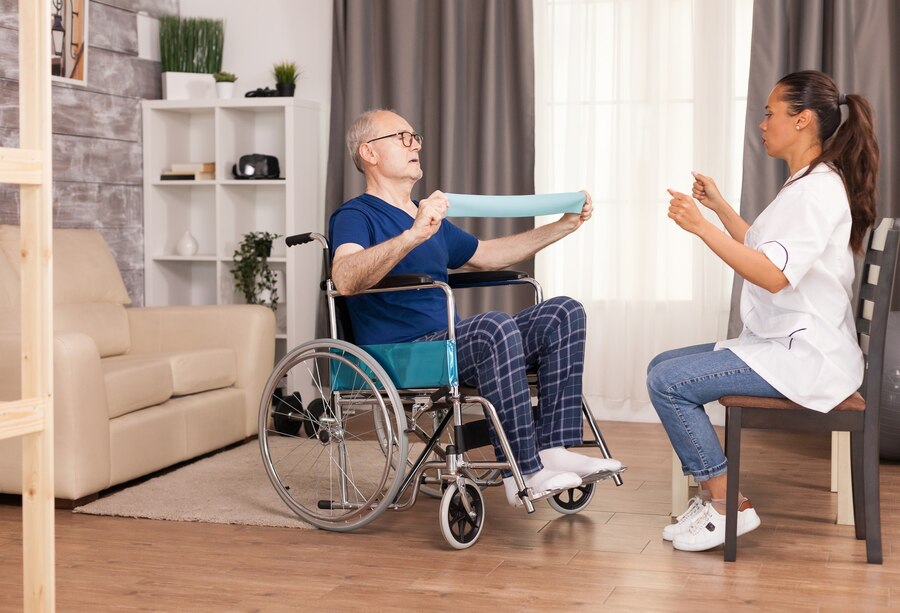Did you know that as of 2024, more than 30,500 assisted living communities are operating in the United States, with an occupancy rate of 83.2%? Assisted living communities offer various levels of care to meet the diverse needs of their residents. Each level, from independent living to hospice care, provides a distinct range of services designed to meet specific needs.
Understanding the 5 levels of care in assisted living can help families decide the best care options for you or your loved ones.
Let’s look at the amount of assistance that is needed for activities of daily living (ADL) and the suitable community for individuals with varying ADLs.
Independent Living
In Independent Living, residents enjoy their independence while also taking advantage of shared amenities and services. This lifestyle gives you the freedom to come and go whenever you want, plus the convenience of having dining options, fitness centers, and social activities right on-site.
Living independently in a community setting allows you to enjoy the company of like-minded individuals while still having the privacy of your own home. Knowing that assistance is available, you can utilize scheduled transportation services for appointments or outings.
This level of care provides a sense of security and peace of mind, knowing that support is there when you require it without compromising your independence.
Assisted Living
Assisted living facilities offer a balance between giving residents their independence while also providing support. They offer services such as help with medications, personal care, meal preparation, housekeeping, and transportation. These communities help residents with daily tasks and encourage social interaction and well-being.
In assisted living, you can enjoy the freedom to take part in a variety of fun activities and events, all while feeling secure knowing that help is close by whenever you need it. The trained staff members are there to assist with activities of daily living such as bathing, dressing, and grooming, allowing you to maintain your dignity and independence.
Assisted living facilities usually provide personalized care plans tailored to your individual needs. This personalized approach makes sure you get the support you need to live a comfortable and fulfilling life.
Memory Care
Memory Care communities are specially created to support individuals dealing with memory loss, including conditions like dementia or Alzheimer’s disease. These communities provide a safe space with caring staff who are familiar with the special challenges faced by residents dealing with memory issues.
In a memory care environment, residents find comfort in structured daily routines that help lessen confusion and anxiety. Activities are created to stimulate cognitive function and memory retention. Memory care facilities are typically designed with a layout that makes it easy to access, helping to minimize the chances of getting lost or confused.
One important feature of memory care is the emphasis on safety. Having secure entry and exit points, along with monitoring systems, helps keep residents from wandering off. Staff members are trained to manage behaviors that can arise from memory-related conditions, creating a safe and supportive atmosphere for both residents and their families.
Skilled Nursing Care
With Skilled Nursing Care, individuals requiring more advanced medical attention and assistance find comprehensive support tailored to their healthcare needs.
This type of care is meant for individuals with complex medical issues that require constant monitoring and expert medical attention. Skilled nursing care is usually given by licensed nurses, such as registered nurses and nurse practitioners, who are trained to give medications, manage treatments, and respond to medical emergencies.
These facilities have a higher staff-to-resident ratio to ensure that every resident gets the personalized attention and timely medical care they need. Nursing care facilities frequently work together with doctors and specialists to create personalized care plans that cater to the specific health needs of each resident.
Hospice Care
In hospice care, people who are close to the end of their lives receive caring support and specialized medical attention focused on their comfort and quality of life.
Hospice care is all about ensuring comfort, dignity, and a good quality of life for those facing life-limiting illnesses. Hospice care can happen in various settings, including the individual’s home, specialized hospice centers, or assisted living facilities that offer this kind of support.
Hospice care teams usually include healthcare professionals like nurses, doctors, social workers, counselors, and trained volunteers who collaborate to support the physical, emotional, and spiritual needs of both the individual and their family.
Hospice care focuses on relieving pain and symptoms, providing emotional support, and helping individuals make the most of their remaining time in comfort and dignity. Hospice care offers support to family members by providing counseling, education, and breaks to help them handle this challenging time.
Conclusion
Whether it’s enjoying the independence and amenities of independent living, assisted living or memory care, receiving personalized support helps maintain dignity and comfort for you or your loved one.
If you are thinking of moving to facilities that provide care and assistance in executing daily tasks, do your research and consider your needs as the top priority.





